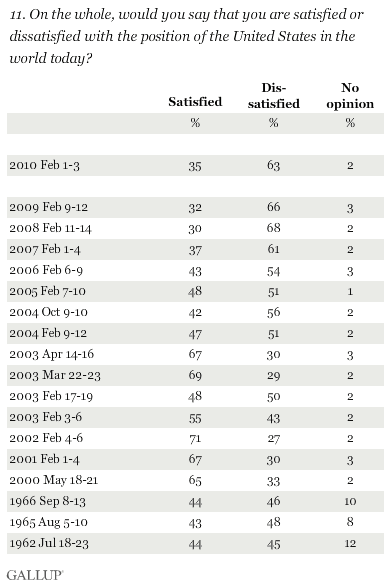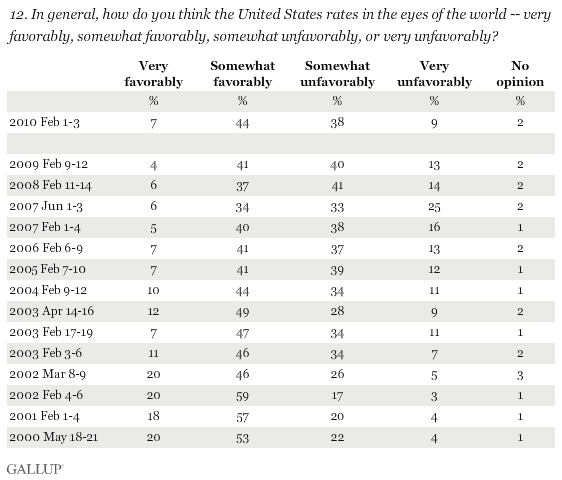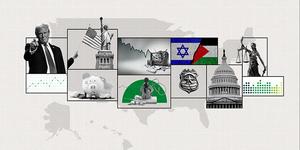PRINCETON, NJ -- After five years when fewer than half of Americans believed the United States was seen favorably in the eyes of the world, Gallup's decade-long trend lines on this measure have again crossed. Fifty-one percent now say the U.S. is viewed favorably, up from 45% a year ago.
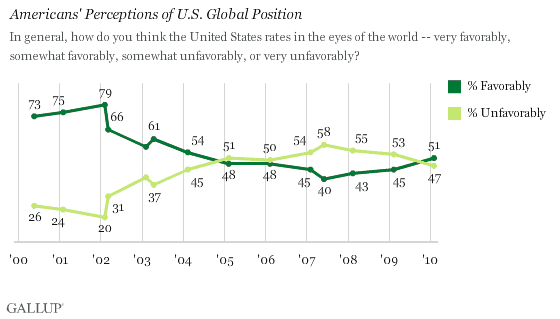
Also positive with respect to U.S. attitudes about the country's global image: 56% of Americans believe leaders of other countries around the world respect President Barack Obama. While this is lower than the soaring 67% who perceived this a year ago, shortly after Obama took office, it continues to far outpace the levels received by Presidents George W. Bush and Bill Clinton during most of their terms.
"Not since April 2003 have a majority of Americans been satisfied with the United States' global position."
Only Bush achieved a similarly high percentage on this measure (in the first few months after 9/11), but that quickly eroded as international criticism of him over the Iraq war mounted after 2002. However, even prior to 9/11, fewer than half of Americans thought Bush was well-regarded internationally. The same was true for Clinton in the two measurements taken toward the beginning and toward the end of his presidency, in 1994 and 2000.
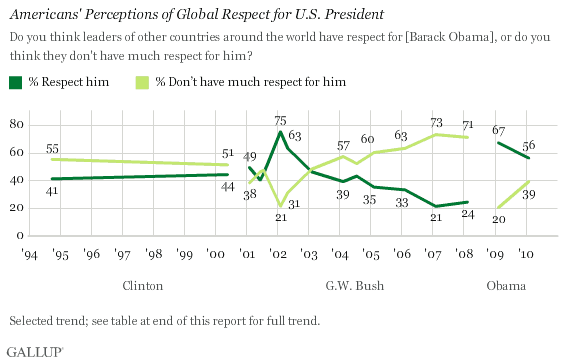
Both sets of findings are consistent with Gallup's worldwide polling that shows a significant improvement since Obama took office in how residents of more than 100 countries view the United States. The global median job approval rating for U.S. leadership rose from 34% in 2008 to 51% in 2009.
Although more Americans now than in the past believe the U.S. and its president are held in high regard by the world community, there has been little improvement in Americans' satisfaction with the United States' position in the world. Currently, 35% are satisfied, similar to the 32% found last year at the start of the Obama administration and only slightly better than the 30% in the last year of the Bush administration. Not since April 2003 have a majority of Americans been satisfied with the United States' global position.
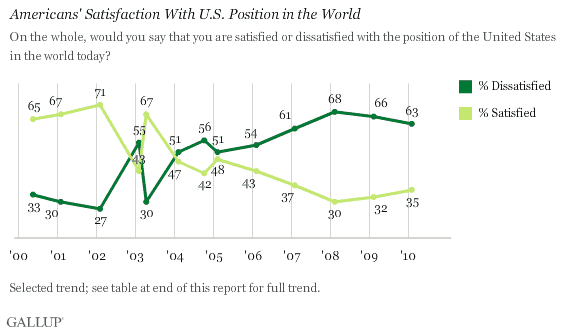
The views of Republicans and Democrats on this question have essentially flipped in the past year. Although Obama was already president at the time of Gallup's 2009 World Affairs survey, it was apparently too soon into his presidency for partisans to tailor their views on this question accordingly. At that time, a higher percentage of Republicans than of Democrats were satisfied with the U.S. position in the world. Today, the reverse is true.
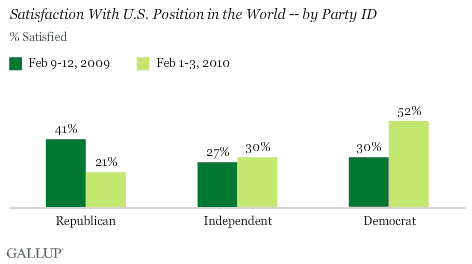
Public perceptions of Obama's reputation have grown more partisan over the past year. While the percentage saying Obama is viewed favorably has declined among all groups, it is down only slightly among Democrats, but more steeply among independents and Republicans.
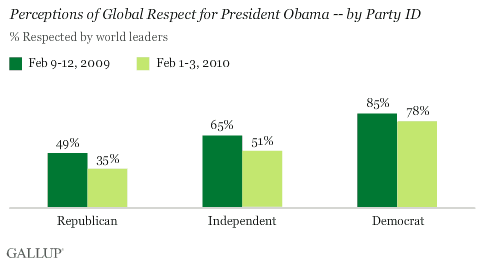
Bottom Line
Americans' perceptions of how the U.S. is viewed internationally and, in particular, how the president himself is viewed, have grown more positive since the end of the Bush administration, even with this year's drop in the percentage believing that world leaders view Obama favorably. However, neither those improved attitudes nor Obama's handling of foreign policy has elevated Americans' reported satisfaction with the United States' position in the world.
Survey Methods
Results are based on telephone interviews with 1,025 national adults, aged 18 and older, conducted Feb. 1-3, 2010. For results based on the total sample of national adults, one can say with 95% confidence that the maximum margin of error is ±4 percentage points.
Interviews are conducted with respondents on land-line telephones (for respondents with a land-line telephone) and cellular phones (for respondents who are cell-phone only).
In addition to sampling error, question wording and practical difficulties in conducting surveys can introduce error or bias into the findings of public opinion polls.
![Detailed 1994-2010 Trend: Do You Think Leaders of Other Countries Around the World Have Respect for [Barack Obama], or Do You Think They Don't Have Much Respect for Him?](http://content.gallup.com/origin/gallupinc/GallupSpaces/Production/Cms/POLL/-tp3-qhmlukxqbmsfp3lya.gif)
